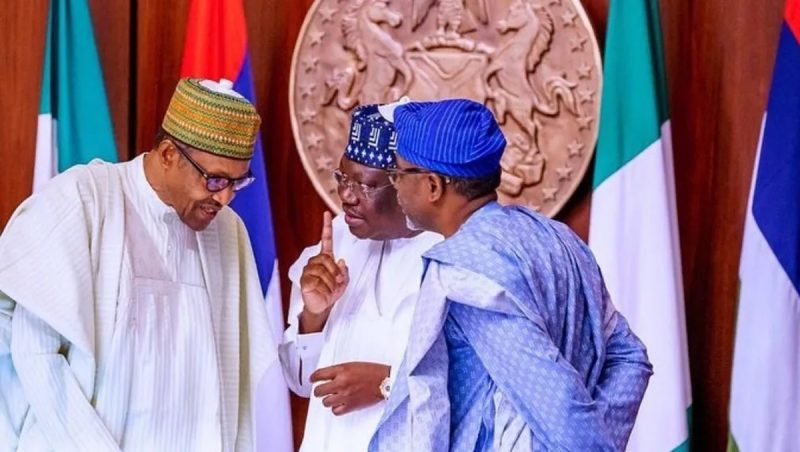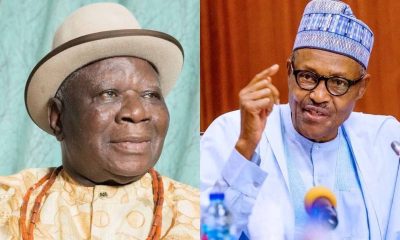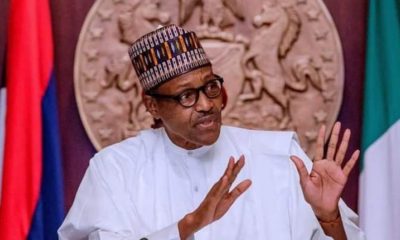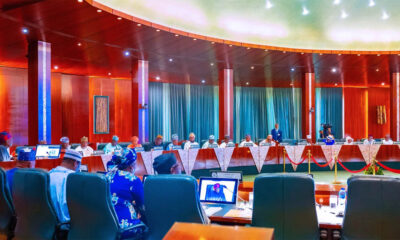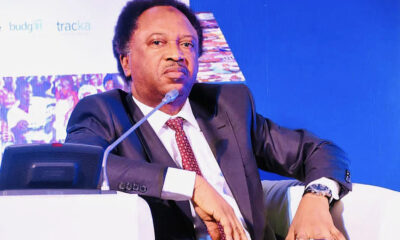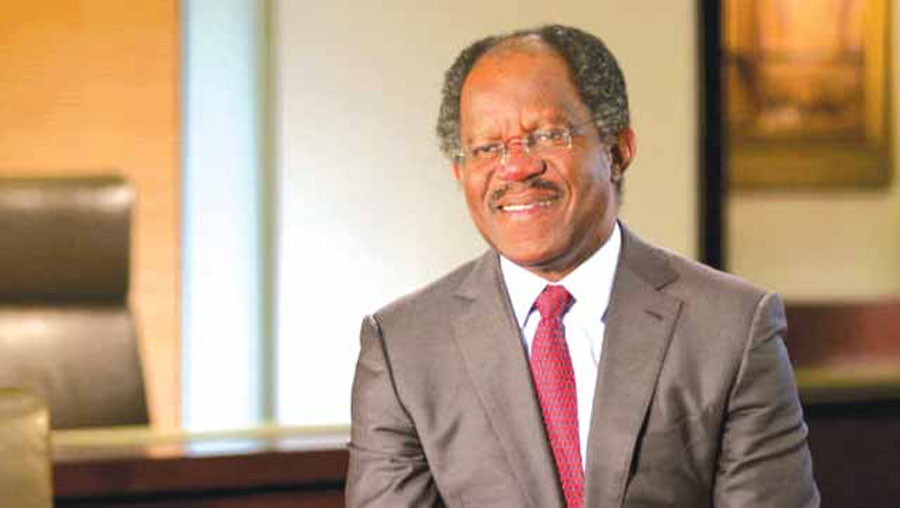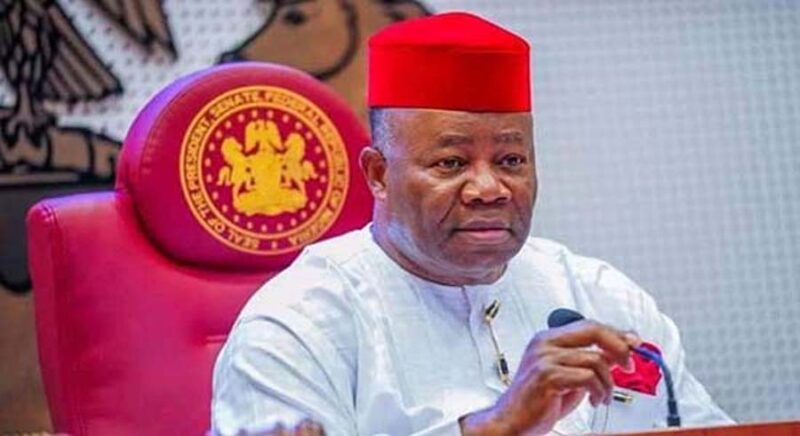Members of the National Assembly last night expressed reservations as President Muhammadu Buhari refused to act on the Electoral Act Amendment Bill presented to him for assent by the legislature, 30 days ago.
The 30-day window for President Buhari to assent the bill elapsed last night. As of the time of filing this story, there was no official communication to the parliament and Nigerians from the presidency on the fate of the much-anticipated bill.
Both the Senate President Ahmad Lawan and Speaker of the House of Representatives Femi Gbajabiamila, had at different times met with President Buhari over the bill and expressed confidence that he would assent to it.
Some of the lawmakers knocked the president, who returned to the country from Istanbul, Turkey, where he attended the third Turkey-Africa Partnership Summit, hosted by the Turkish President, Recep Tayyip Erdogan.
The National Assembly had, on November 19, transmitted the bill to President Buhari for assent in line with the constitutional provision.
Section 58 (4) of the 1999 Constitution says, “Where a bill is presented to the President for assent, he shall within 30 days thereof signify that he assents or that he withholds assent.”
READ ALSO:
While the political and civil society actors waited with bated breath for the president’s action on the bill, it emerged last week that the Attorney-General of the Federation (AGF) and Minister of Justice, Abubakar Malami (SAN), had written a letter to Buhari, highlighting the problems with the inclusion of mandatory direct primaries in the Electoral Act amendment bill.
He informed the president that making direct primaries mandatory for all political parties could cause confusion.
A source told Daily Trust yesterday that the president will communicate to the leadership of the parliament today, where he is expected to raise reservation with clause 87, which provides for direct primary.
There has been a cold war between federal lawmakers and governors over the inclusion of direct primaries in the bill, with the latter mounting pressure on the president to reject the provision.
Various Civil Society Organisations (CSOs) yesterday asked the parliament to override the president’s veto to pass the bill into law.
Recalled that in June 2000, the National Assembly passed the Niger Delta Development Commission (NDDC) bill with over two-thirds majority, thus overriding President Olusegun Obasanjo’s veto.
A cross section of senators told Daily Trust yesterday that before they embark on the end of the year recess this week, a decision would be taken on the electoral bill should the president withhold assent.
A Senator close to the presiding officers, said they are yet to receive any communication from the president regarding the bill.
Speaking to one of our correspondents, the lawmaker said action would be taken when the president communicates his decision on the bill to them.
READ ALSO:
“For sometimes, there have been pressure that we should invoke the 2/3 rule as enshrined in the 1999 Constitution if the president fails to assent it. Discussions are on along this line but there are a lot of things that would be looked at before we can arrive at anything,” he said.
Another ranking lawmaker said the president was being misled by his handlers to cause confusion in the polity.
“He would not assent to it because he is being misled by people around him and he likes to hear that. They are doing this to cause confusion in the polity. It would be difficult for us to override the president’s veto because we cannot get the 2/3,” he said last night.
But Senator Kabiru Gaya (APC, Kano), expressed optimism that the president will act on the bill.
Another senator who spoke to one of our correspondents said, “We passed the bill to strengthen the country’s democratic process, especially the conduct of our elections. From reactions that trailed the passage, it shows that majority of Nigerians are in support of the bill.
“Certain people, very few in number, who are not comfortable with some sections of the bill are expressing reservations. We, in the National Assembly, will continue to act in the interest of the majority of Nigerians, who we represent. Our action on the electoral bill will not be different. Nigerians should wait patiently.”
Another senator, referring to state governors, said “They tried to lobby us to rescind our decision on direct primary but failed. They now transferred the pressure on the president to reject the bill.”
He said if the process of conducting primary elections is optional, elective offices would be populated with incompetent cronies.
Senate spokesperson, Senator Ajibola Basiru declined to comment on possible options the Red Chamber is weighing on the electoral bill after the expiration of the 30-day timeline.
Asked further on what Nigerians should expect from the Senate should Buhari decline assent, he said; “I don’t have any comment on it,” and hung off.
Rep Tanko Sununu (APC, Kebbi) while responding to questions on the matter said it was too early for him to make comments since the president was yet to communicate to House on whether he has assented or declined assent.
“For me, I won’t say the president has turned down assent or has assented because, there are formal channels of communication of which by Tuesday’s sitting, we should be able to know whether the president has assented or not.
“And that will definitely guide the decision the House will take. I don’t want to preempt what the president has done or has not done. Had it been he has not assented to and it is made public, then I can comment”, he said.
Speaking in the same vein, a lawmaker from the South South geopolitical zone, said it would be preemptive to begin to comment on the next move of the lawmakers since it has not been ascertained that the president has withheld his assent.
Rep Babangida Ibrahim (APC, Katsina), said, “The President must communicate whether he assented to the bill or not. You know Saturdays and Sundays are not working days. So, you cannot say whether he has rejected it or not.”
Presidential aides on National Assembly, Senator Babajide Omoworare (Senate) and Umar Ibrahim El-Yakub were unavailable for comments last night.
READ ALSO:
Override president, CSOs urge lawmakers
The Executive Director, Civil Society Legislative Advocacy Centre (CISLAC), and also Coordinator, Transparency International (TI) in Nigeria, Auwal Musa Rafsanjani, said the National Assembly members, as the representatives of Nigerians, have done well in passing the majority wish of the citizens to the president.
He said that it is left for the lawmakers to prove to Nigerians that they are not rubber stamp, as claimed by Senate President Ahmad Lawan, by overriding President Muhammadu Buhari’s veto.
“The president’s interest should not override Nigerians’ and national interest. It is disheartening that the president who lamented that he was a victim of political corruption before emerging president, has not sent any bill to the National Assembly to deepen democracy and is not keen on acting in the interest of tackling political corruption by signing the Electoral Amendment bill sent to him the National Assembly,” he said.
Also speaking, the Convener, Good Governance Team (GGT), Mr. Tunde Salman, urged the National Assembly to override the presidential veto at least to pass a strong message that the current Assembly is not a rubber stamp legislature as widely believed.
“I am not comfortable that the Attorney General of the Federation (AGF) would now be serving as a clearing house for bills passed by the National Assembly. Where was his office, when the amendments procedures were being considered, to make his inputs?” Salman said.
On her part, the Director of the Centre for Democracy and Development (CDD), Idayat Hassan, noted that President Buhari has a penchant for rejecting electoral bills.
She said between 2017 and 2018, the president declined the bills four times giving reasons ranging from controversial clauses to time frame under the ECOWAS’s supplementary protocol as his reasons.
Hassan said, “This fifth rejection will be one too many. The president was a beneficiary of an improved electoral landscape including law and election management body. So, he must bequeath the same as legacies to Nigeria. A refusal to sign the electoral bill because of direct primaries will militate against forward-looking provisions such as the electronic transmission of results.
“What exactly is bad in doing direct primaries if it will open up the political space for women, youth and other historically marginalised categories? We can only hope that the lawmakers can show they are true representatives of the people, not their political parties and go ahead to veto. The 312 votes needed should be a walkover but it may be a pipe dream for us as citizens.”
On their part, a coalition of CSOs said that the president’s delay in signing the bill has created unpalatable suspense and generated avoidable apprehension, although his inaction may not be the final call after December 19.
This was contained in a joint statement by Ariyo-Dare Atoye, Executive Director, Adopt A Goal Initiative; Jude Feranmi, Convener, Raising New Voices Initiative; Maryam Ahmed, Programme Officer, Center For Liberty; Kenneth Eze, Convener, Speak Out Africa Initiative; Simi Olusola, Executive Director, The Nigerian Alliance; and Obinna Eze Nwagbara, Executive Director, Youth and Students Advocates for Development Initiative (YSAD).
They said, “This will not be the first time in the last 20 years that the National Assembly will override the president; the 4th legislative session did so and got the NDDC Act passed and operational. The 9th National Assembly has the opportunity of not sharing with the executive the glory that will accompany the new act.”
Daily Trust

